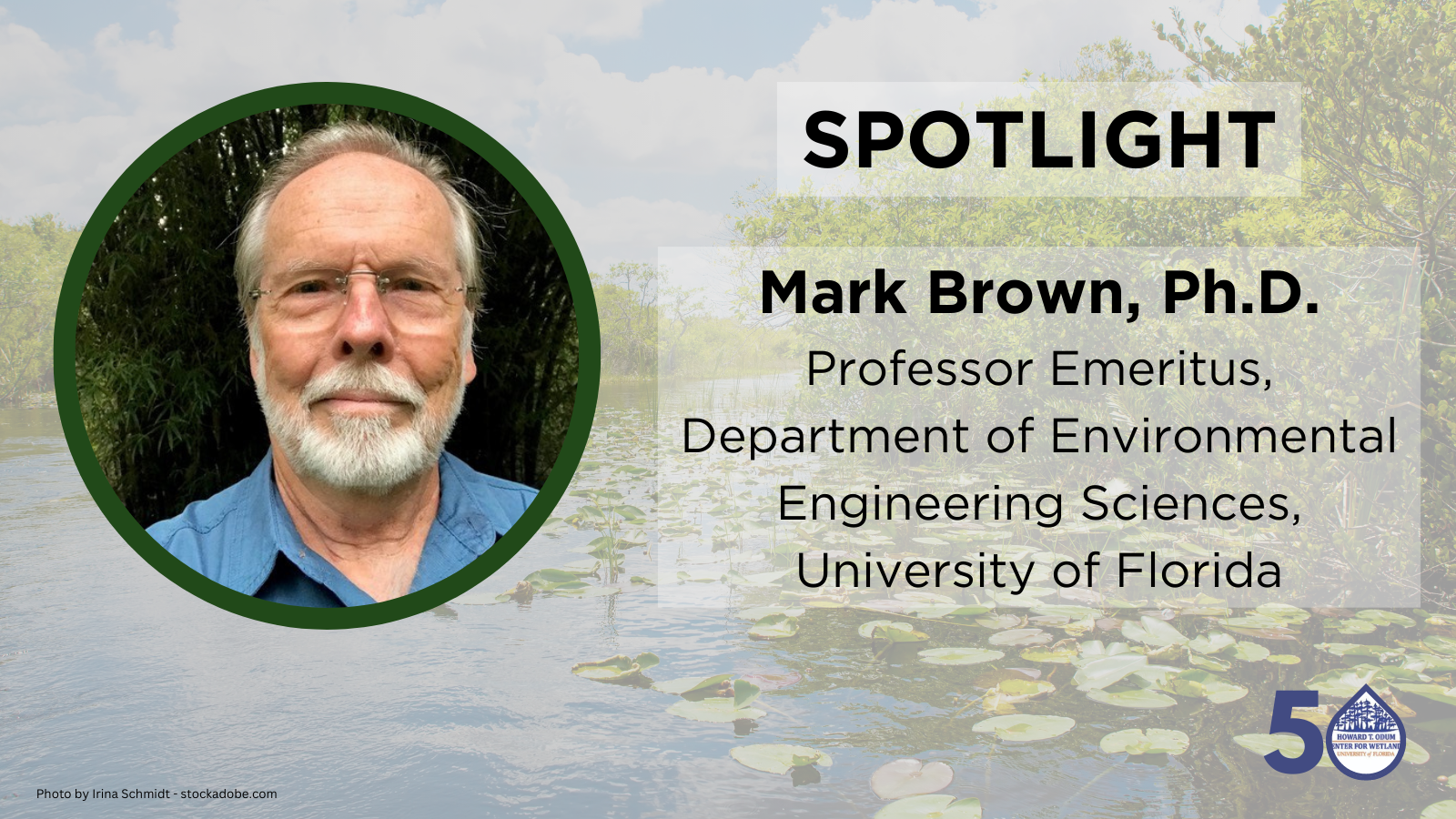Mark Brown: Unifying Research to Bolster Wetland Science

Mark Brown, Ph.D., is a Professor Emeritus of Environmental Engineering Sciences and previous Director of the Howard T. Odum Center for Wetlands. He is a systems ecologist, whose research focuses on systems ecology, wetlands ecology, ecological engineering and emergy analysis.
This spotlight features his commitment to the CFW’s mission, research and seminar series through its 50-year journey.
Can you tell me about your involvement with the Howard T. Odum Center for Wetlands?
I’ve been affiliated with the Center for Wetlands since before its inception. I was a Ph.D. student of H.T. Odum’s and at the time, Odum was applying for a large project to use wetlands for wastewater recycle. When he got funding from the National Science Foundation and Rockefeller Foundation, he wanted to form an interdisciplinary center to bring together people, faculty and students, from all over campus to study wetlands.
We were trying to raise the consciousness of society around wetlands, so they’d start protecting them. Until that time, there was not really protection – they were drained, paved over and used for agriculture.
I was actively involved in the Center, the Center’s research and helping to curate the wetlands seminars as an Associate Scientist with the former director, Ronnie Best. The idea was first, the Center is the place in a university where there is true interdisciplinarity. That’s what they’re all about! That’s what they’re for, to bring people together from other silos and disciplines and put them in the same place, talking and listening to each other to move science forward. The second part was that you get this cutting-edge science.
Those were the two things that I felt were really important to keep the Center and the seminars going. It’s not just a Center in name, but it has a purpose, and that purpose is interdisciplinarity and shared, cutting-edge science. It was very important to me, and it always has been, and I kept that going as a director until I retired.
Why are the Water, Wetlands, and Watersheds Seminars important?
I’ve told my students over the years that seminars are the absolute latest science that’s going on in their field or area! If you read the latest book on your science, the research that created that book was at least ten years old, because it takes that long to pull it all together. Now you go to a journal article. By the time you do the research, write the journal article, and then get it published, that’s at least three years. That’s all old science.
So, if you want to get new, good science, the cutting edge of what’s going on, the only place that you can do it is at a seminar because you invite people to come and you say, “Tell us what you’re doing, not what you did, but what you’re doing now.” So, seminars are incredibly important, and I used to impress upon my students that it is a gift to go. Anytime you hear that a seminar is going on, then go! You’ll learn something. There’s something there that’s really valuable.
Why have you chosen to stay involved with the CFW?
It has been part of my life for 50 years, there’s no way you can walk away from that. Even though universities change, I believe in the mission of what the Center is about, which is integrating humanity and environment in a positive way, whether that’s protecting wetlands, or using wetlands for wastewater recycle, the whole idea is we have to work with this as a combined system of humanity, nature and education.
We’re not only doing research, but we’re educating the next generation of researchers, policy makers, teachers, and more in holistic systems concepts and systems ecology. The Center is the place where that really happened and continues to happen.